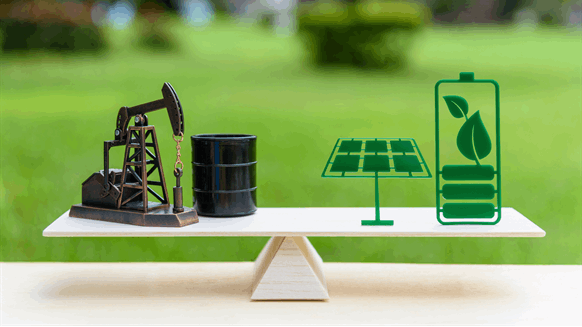
As climate change concerns grow, worldwide efforts to transition to a low-carbon future have also intensified. And although industry analysts agree that the global energy transformation is happening, they are quick to point out that oil exploration activities should not be written off just yet.
Investments in renewable energy have dwarfed upstream spend in recent years. By the end of 2019, investors poured in more than USD 2.5 trillion in increasing global renewable energy capacity, based on estimates by the United Nations Environment Programme (UNEP).
Meanwhile, investment in exploration stood at just USD 60 billion in the same year, as spending in the sector almost halved between 2014 and 2018, according to the International Energy Agency (IEA).
But Bart Cornelissen, who leads Deloitte Middle East’s Energy, Resources and Industrials consulting efforts, believes there is still room for exploration in the low-carbon transition. “Exploration will decline over time. But for the time being, it is still very much needed,” he says.
As the paradigm shift towards renewable energy shapes oil producers and investors’ appetite for exploration, Cornelissen also underscores the importance of distinguishing between the short- and long-term perspectives on the industry.
“If we look at the longer term, there is an increasing role for less carbon-intensive energy. However, in the near term, we still need a tremendous amount of oil- and gas-related investments, and this is very much driven by the fact that a normal oil field depletes about 7- to 8 percent per year,” he explains.
“So even if the volume of oil produced remains stable, there is still a need to do a lot of exploration to fill that annual gap. The question is not around oil eventually being taken over by renewables. It is about timing.”
Given that certain sectors, such as transportation, are entirely dependent on oil, the world cannot quit fossil fuels right away, he says.
“What we need to understand is that even if every car sold today is an electric car, it would still take around 20 to 30 years before all conventional cars are phased out. In that sense, I would say that the future of energy is an evolution, not a revolution,” he adds.
‘Innovating to zero’
Abhay Bhargava, director of Industrial Practice for the Middle East and South Asia at Frost & Sullivan, says the trend of “innovating to zero” has been a key factor in influencing a reduction in future investments in oil exploration. However, he believes it is incorrect to attribute the decline entirely on the advent of renewables.
“Countries will continue their march towards diversifying their energy mix, and increasingly adopt renewables, impacting oil consumption,” Bhargava says. “We however expect an even greater impact coming from the thrust towards decarbonisation, wherein the world moves towards reducing its carbon footprint, and embracing a circular economy, across all forms of consumption, ranging from near-term measures like electric vehicles to long-term measures that are focused towards energy and resource efficiency.”
As a result, he expects oil consumption, and in turn exploration, to continue witnessing a certain decline over the next decade and beyond.
Upstream outlook
As the energy transition gathers pace, Bhargava says oil companies will focus on enhancing productivity and efficiency of their existing upstream assets, with deferred investments in capital expenditure, unless absolutely necessary.
“We can expect this to continue this year, and in the short term. We can also expect increased investments in the relatively newer areas of carbon capture utilization and storage, energy storage, asset reliability and remnant life extension, and Industry 4.0, [which includes] digitalization, analytics, edge computing, sensors, drones, and blockchains,” he notes.
Asked about his projections for the upstream industry, Cornelissen predicts the oil market could post a compound annual growth rate of as much as 1% over the next 10 years.
But he warns that near-term developments, including political conflicts, oil production disruptions, or a possible coronavirus pandemic, could have a massive impact on longer-term consumer behavior and the oil market in general.
Criselda Diala-McBride is a Dubai-based freelance journalist with more than 20 years of experience writing and editing articles on oil and gas, finance, aviation, tourism, retail, technology, and property for a range of print and online publications. She can be reached by email at cdiala@gmail.com.




No comments:
Post a Comment